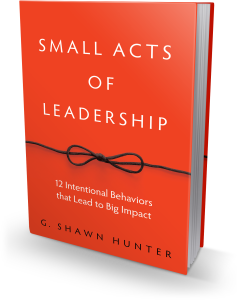Your Vulnerability is an Act of Courage
Imagine you just got in a disagreement with your colleague. You had one idea, they had another. In the moment, the stakes were high. You were adamant. You were right! And besides, they were being ridiculous.
Or imagine you got in an annoying little passive-aggressive argument about nothing with your partner. Something small like who fills the gas tank more often, or who does the dishes, or who takes the trash out more often – a petty kind of argument about keeping score, the greatest of losing games.
In either example, now imagine you are the first to apologize. You are the first to reach out and say words of kindness, or words of reconciliation. How does that makes you feel? You might feel vulnerable, or weak, or embarrassed perhaps. But definitely hesitant. Now imagine something even more vulnerable. Imagine confessing romantic feelings or deep personal doubts or weaknesses to our partner. It can be scary right?
When we admit fault or show vulnerability, we often feel inadequate or shameful.
Now imagine it’s the other person that comes to you first. Your colleague or your partner steps up and says, “I’m sorry that happened. I see your point. I’m sorry I was frustrated and upset.”
When we imagine ourselves showing vulnerability in these situations, we cringe. It often makes we feel small and weak and scared. But when we see others act in these very same ways, we are often inspired and attracted to that person. We see strength in their honesty. While we feel embarrassed or ashamed by revealing ourselves, we can be inspired and impressed when others do it.
When we see others show vulnerability, we often see courage. We see the beautiful, honest mess of a human being that we all are on some level. Yet when we practice vulnerability ourselves, we feel inadequate. Here are a few ideas to help our courage in moments when we reveal we are, in fact, a beautiful, complicated mess of a human being.
Call it what it is. Awkward! You go into a department store and try on a jacket. It was the jacket of another customer. You’re checking out at the grocery store. The pregnant cashier says, “Have a nice day.” You say, “Have a nice baby.” {Smack forehead} These true stories of idiocy go on.
Make fun of your situation. When you call out the comedy and hilarity of a vulnerable moment, you diffuse the tension and appear more confident and courageous to others.
Practice self-compassion. Self-compassion is the act of mindfully acknowledging whatever pain, ill thought, or difficulty we are confronted with, and treating ourselves with humanity and care. It’s the very opposite of the harsh, critical language we often use on ourselves.
Let it go. Seriously, blow it off. Whatever silly or embarrassing comment you made will linger much longer in your own head than in others. Other people, particularly those who care about you are much more likely to assume best intentions and let it go. You should too.
For some people the craving for authentic interactions and relationships is so strong they join the “Authentic Revolution” and attend regular meetings in which the goal of the evening is to be open, forthright and honest. According to participants it can be quite a rush.
“Just revealing something vulnerable about yourself can be its own rush, it can be its own thrill.”
– Bryan Bayer, co-founder of the Authenticity Revolution
- ____________________________________________________

In other news, our son and I bicycled across America with two other dads and their teenagers. We published a new book about it called Chasing Dawn. I co-authored the book with my cycling companion, the artist, photographer, and wonderful human jon holloway. Buy a copy. I’ll sign it and send it to your doorstep.



